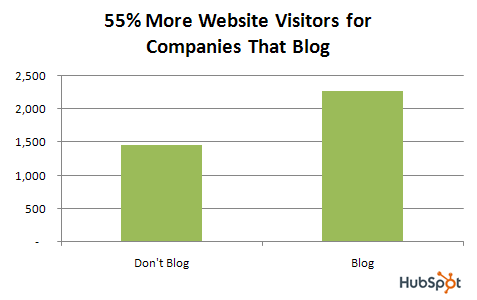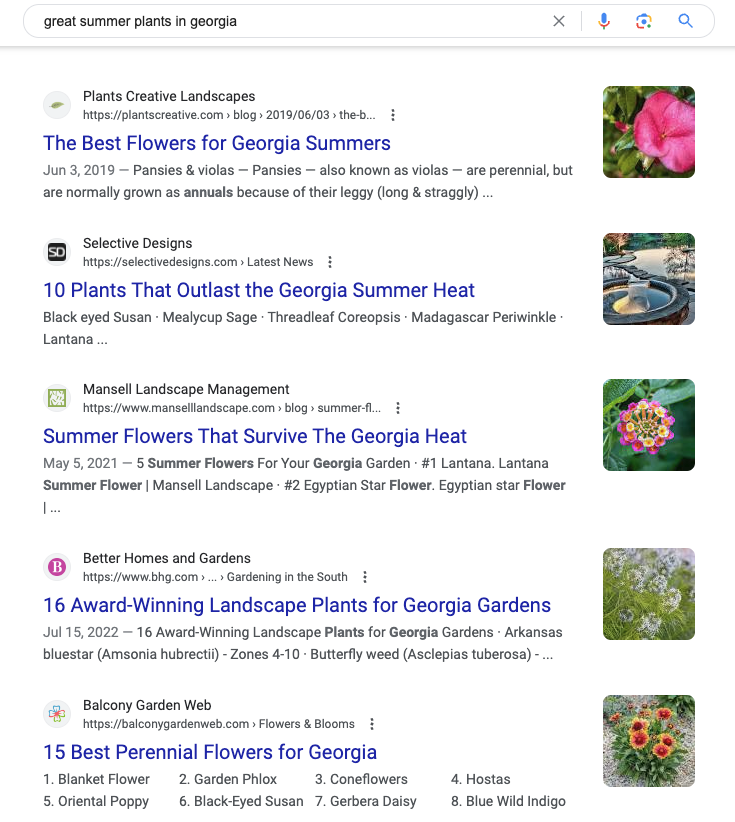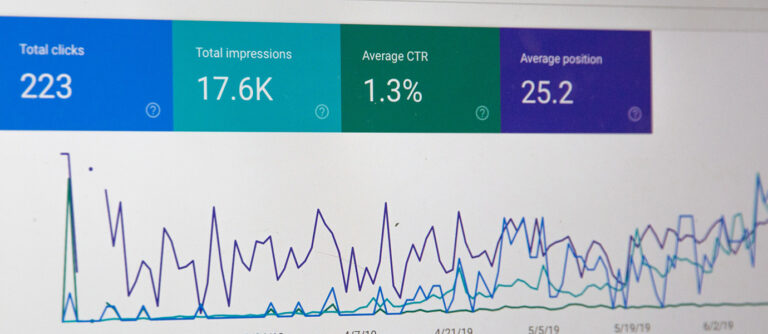Why Content Marketing is Crucial for Small Businesses

In the small business world, prioritizing crafting a blog post amidst customer support, payroll, strategic planning, and meetings can take a lot of work. Yet, content marketing goes beyond the confines of blog posts as an invaluable tool for small businesses.
Content marketing is essential to any marketing strategy, particularly for small businesses. You can captivate and retain your audience by utilizing diverse types of content, such as videos, webinars, FAQs, articles, ebooks, and blog posts.
Compelling statistics back the effectiveness of content marketing:
- Active blog writing and publishing businesses attract 55% more website visitors.
- 70% of people are more inclined to gather information from an article or blog post than a traditional advertisement.
- Nearly 40% of marketers say content marketing is vital to their overall marketing strategy.
The necessity of content marketing becomes clear for any small business. In the succeeding sections, we explore nine reasons this strategy is too vital to overlook.
Nine Key Advantages of Content Marketing for Small Businesses
Enhances Search Engine Visibility
In today’s digital era, with over 5.18 billion people (2023) connected to the internet, having an online presence is crucial for businesses. Whether you expect it or not, customers and potential customers search for your services online.
Establishing an online foothold entails building a website, owning social profiles, and optimizing your Google Business Profile. But with content marketing, you can reach beyond those explicitly seeking you out.
Generating content tailored to keywords associated with your business can improve your search engine ranking. For example, a landscaping company could target keywords like “summer lawn care tips” or “best perennial flowers.” Even if they are looking for a service after a while, people searching for these terms are interested in landscaping, which presents an opportunity for your business. Pairing keyword optimization with additional related content can strengthen your SEO strategy.
Drives Website Traffic
Building on the previous point, content marketing has the power to attract a greater audience to your website. Remember that businesses actively creating and publishing blog posts enjoy a 55% increase in website traffic.
By generating relevant, high-value content, your website becomes a beacon to those in your industry. They’ll not only visit but will likely return for future inquiries. This consistency of traffic fuels the growth of your website’s reach over time.

Bolsters Authority
For small businesses venturing online, it’s crucial to establish authority and credibility. You can incorporate trust signals like customer testimonials or user reviews to assure visitors of your business’s authenticity and effectiveness.
Another critical aspect of asserting your authority and validating your business’s credibility is through content marketing. The Nielsen Norman Research group reports that updated, comprehensive content is among the top four methods of proving website credibility:
In our study, users appreciated sites that contained a large amount of relevant content because it showed that the organization was well-informed and committed to helping its customers.
Doesn’t that sound like an excellent content marketing blog post?
Comprehensive, relevant content makes businesses appear more trustworthy, and combining trust indicators with content marketing is even more compelling. If a friend recommends a roofing company, I’d be more inclined to consider them if their website boasts valuable and pertinent content demonstrating their expertise.
Facilitates Lead Generation
Of all the benefits listed, this might be the most impactful for your financial outlook: Content marketing can help you obtain more leads (potential customers).
Indeed, content marketing generates three times as many leads per dollar as traditional marketing techniques, costing 62% less.
However, how can you generate leads with content marketing? There are numerous paths. If you’re authoring blog posts, you can prompt users to subscribe to a blog newsletter, subsequently adding them to your email marketing lists.
Additionally, you could utilize pop-ups or in-text CTAs to offer a content download, requesting users’ information like their email address, mobile number, and name in return. This information allows you to engage them with marketing offers.
You can capture leads similarly for webinars or events, posting your event on social media and requiring registration information or even setting up a paid ad campaign for broader reach.
The key to success is crafting high-quality content to spark user interest, generate leads, and ultimately grow your business.
Boosts Sales
Engaging content piques your readers’ interest and enhances your lead conversion, culminating in increased sales for your business. With an increasing number of people employing ad-blockers, content has become the prime medium for conveying value that persuades readers to become buyers.
High-quality content is non-intrusive, enticing your target audience to interact with your business naturally. A content map can help create personalized content that addresses your audience’s specific place in the sales funnel, leading to more engagement and a higher chance of finalizing more sales.
Educates your Audience
Content marketing provides a platform to educate your audience about your products or services and broader industry trends through blog posts, videos, webinars, and more.
Consider the example of Travel Agent: in the current digital world they continue to publish a magazine that is informative and educational about the traveling industry. By avoiding hard sales and providing valuable, insightful tips for their audience, Travel Agent established their industry authority and trustworthiness as a brand. These factors significantly influence consumers when they are considering a purchase.
You can foster similar connections with an online marketing strategy by avoiding hard sells—or any selling at all—and providing valuable, useful tips for your audience.
Gives an Edge Over Competitors
In the relentless race to stay abreast of competitors, ensuring your brand is represented across the same marketing channels as your competitors is crucial. Failing to do so results in missed opportunities to win business.
For instance, someone searching for “great summer plants in georgia” may not intend to make a purchase but is seeking information. If they search for these tips and see five gardening companies in the search results, other gardening companies not employing a content marketing strategy could miss out on prospective business.

Strengthens Brand Loyalty
Content marketing not only helps you gain customers by converting readers into first-time buyers but also encourages those buyers to become repeat customers. Over time, content marketing helps cultivate an affinity for your brand, making customers choose you over your competitors, enhancing customer retention, and building a robust brand community.
Complements Other Marketing Strategies
Aligning them all can be challenging given the variety of marketing activities and channels today. Content marketing serves as the adhesive that binds these channels and activities together, ensuring consistent marketing messages and goals.
For instance, if you’ve crafted an informative ebook and downloadable checklist about preparing homes for the winter, you can promote this ebook organically on social media through Facebook ads, search ads, display ads, and even send it to your customers as part of your email marketing. This single piece of content bolsters your multichannel marketing strategy!




